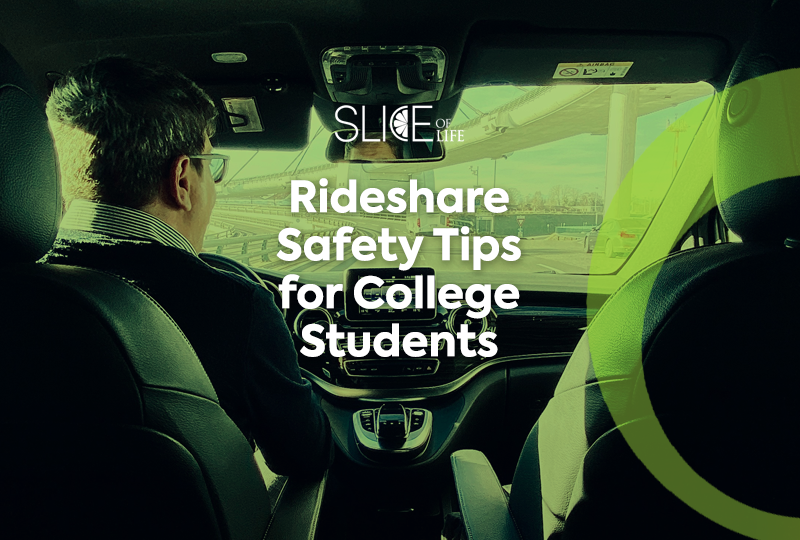Rideshare apps are a gamechanger, altering the ways that we get where we need to be and making travelling from Point A to Point B more convenient. The rideshare concept has major potential benefits, like avoiding drinking and driving and promoting sustainability through carpooling. With that said, it takes a significant amount of trust to get in the car of a virtual stranger, and though there are some safety precautions in place through companies like Uber and LYFT, a certain degree of situational awareness is prudent.
Rideshare at a Glance
(Adapted from Auto Insurance.com’s article, “Rideshare Safety Guide 2023”)
Overall, the safety risk is pretty low when using the two most popular rideshare apps Uber and Lyft. The latest full safety reports by Lyft and Uber are for 2019-2020, with Lyft reporting 1,860 reported safety incidents (.0005% of total rides) and Uber reporting 2,947 (.0003% of all rides). It is worth noting that Uber’s safety incident record is 46 percent lower than Lyft’s overall. Sexual assault in different forms is the most reported incident type.
These companies conduct different types of driver screenings, such as background checks and annual vetting. There are also monitoring mechanisms in place that notice strange activity, such as a long stop or a route deviation.
Rider Tips
- Review ratings. Choosing your driver might not be allowed, but you can check out their rating and prior experience before entering their car.
- Make sure your information matches up. Make sure the car that pulls up is the correct make and model with the same license plate listed on the app. Ask the driver’s name to confirm and ask them to repeat your name. Never assume a car is yours just because they ask if you ordered one.
- Tip in the app, not with cash. Tipping with cash requires too much physical proximity.
- Don’t share personal information. It’s fine to chat with your driver, but they don’t need any personally identifiable information, such as your full name, mailing address, phone number or email.
- Don’t wait outside for your ride. Make your ride request inside your current location and wait to come out until the car arrives because standing outside alone is probably not safe, especially when it’s dark.
- Use location sharing. Share your geolocation with friends and family using the app’s safety features.
- Only sit in the backseat. It’s safer from a crash perspective and gives you good physical distance.
- Keep an eye on the route. Sharing your location is good, but it is also helpful to watch the trip map to see your progress and make sure you are going the right way.
- Call for help. If feeling unsafe, use the safety button in the app or third-party app capabilities if you use something for extra protection.
- End the trip. If you feel uncomfortable or unsafe, ask the driver to pull over to end the ride.
If an incident occurs, report it to the app company immediately and the authorities if necessary. Other ways to stay safe include riding with trusted friends to a safe location, doing your best to ride when you are not overly intoxicated or under the influence, and avoiding using a carpool option to ride with strangers. Happy and safe riding everyone!
Campus Safety at Life University
If Campus Safety is needed on Life University Campus related to rideshare or any other safety concerns, here are some essential resources for assistance.
Life University Campus Safety is located at 1085 Barclay Circle. The office is open Monday through Friday, 7:00 a.m.-10:00 p.m. EMERGENCY ON CAMPUS: Dial (770) 426-2911.
The campus is patrolled 24/7/365, and we work with local emergency response agencies such as Marietta Police Department, Cobb County Sheriff and Marietta Fire Department.
A Life University, a Campus Safety Department official can be reached 24 hours per day, seven days per week in the event of an emergency by dialing x2911 from a University phone or 770.426.2911 from a cell phone or off-campus landline. It is a good idea to store the Campus Safety emergency phone number on speed dial in your cell phone so that you can reach an officer quickly and easily. For your safety, there are also emergency call boxes located in various key areas on campus. Emergency call boxes are identified by blue poles and lights, which are illuminated at night, and can be used to immediately contact Campus Safety.
Life U’s Campus Safety also provides the LiveSafe App, which students should download for virtual safety escort services and many other convenient safety features.
Life University complies with federal and state laws and does not discriminate on the basis of race, color, gender, religion, national origin, age, sexual orientation, disability, medical condition, pregnancy, citizenship or veteran status. This may require the department to notify the Office of Student Affairs and local police departments of violations of law that also violate university policy or codes of conduct and vice versa.


Social Media